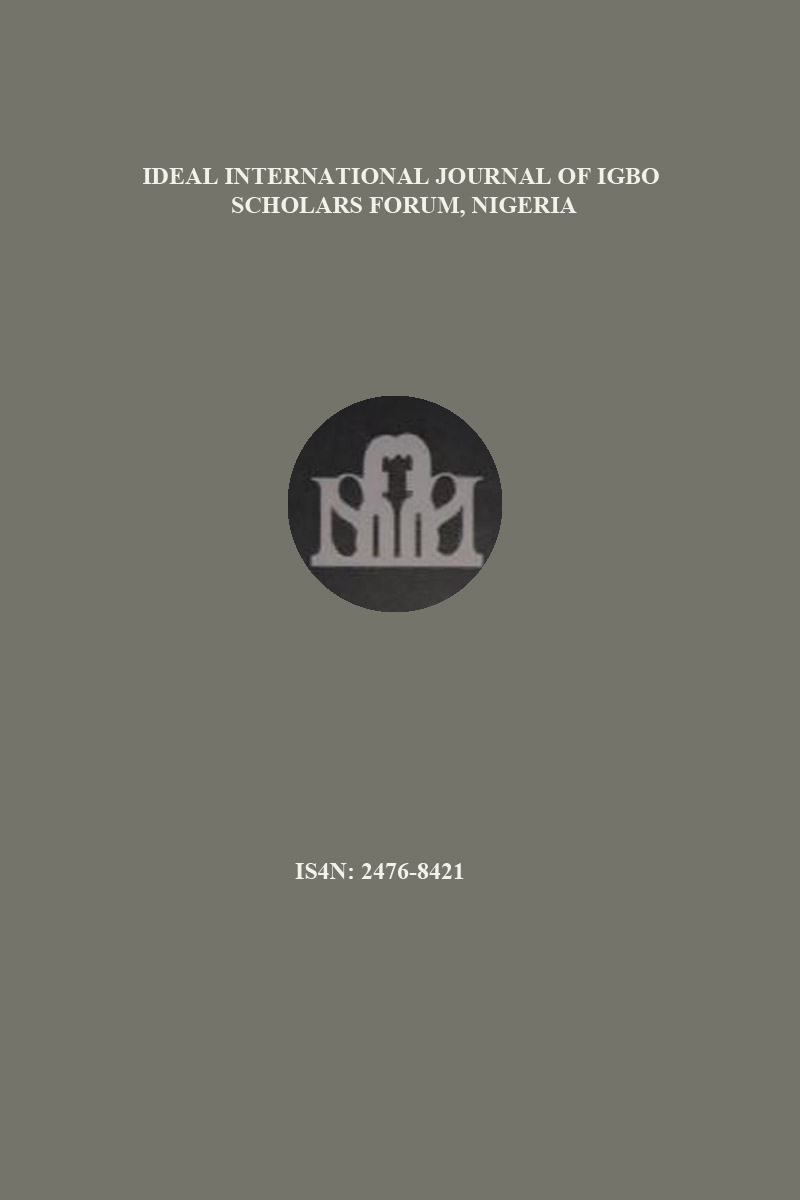Language Policy: A Panacea towards a comprehensive integration and National Unity in Nigeria
Abstract
Language is very important in every human life; hence one cannot communicate without language. Therefore the role of language in the society is significant that it can make or divide the people, build or destroy a nation or State. Nigeria's problem of multilingualism dates back to the colonial era and this has affected her national unity and genuine comprehensive intergration of the various ethnic nationalities. The debate about the use of mother tongue (part of the multilingualism) as part of the medium of education in Nigeria dates back to the colonial era. According to Afe (1991), the language policy had been in Status book since 1925, recommended that both English and the mother tongue must be given recognition in the educational system. This study therefore examines the Language policy of the country as a panacea to national unity, genuine intergration and development in Nigeria; The observations and problems in the National Policy on Education (Emenanjo, 1985) and Oyetade, 2003). In this paper, the authors try to determine the roles of National Policy on Education in enhancing effective communication among school children in Nigeria; ascertaining the role of schools in implementing the multilingual provisions of the NPE and ways of fostering national unity and integration through the English Language in Nigeria. The article views previous scholarly works by other researchers which are in line with the topic to ensure accurate information. Finally, the authors conclude with summaries, remedies and recommendations towards enhancing national unity through language policy in Nigeria.


